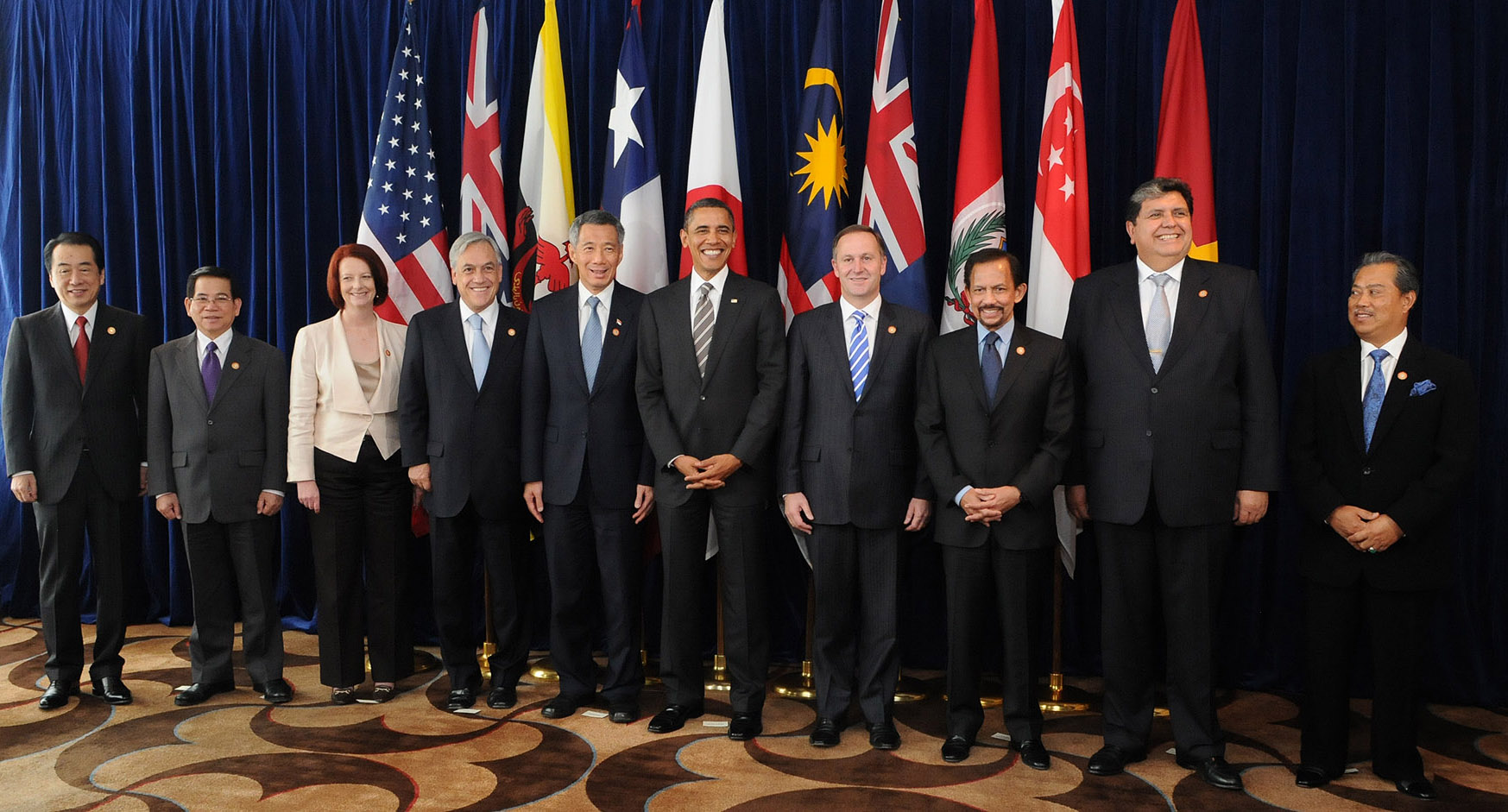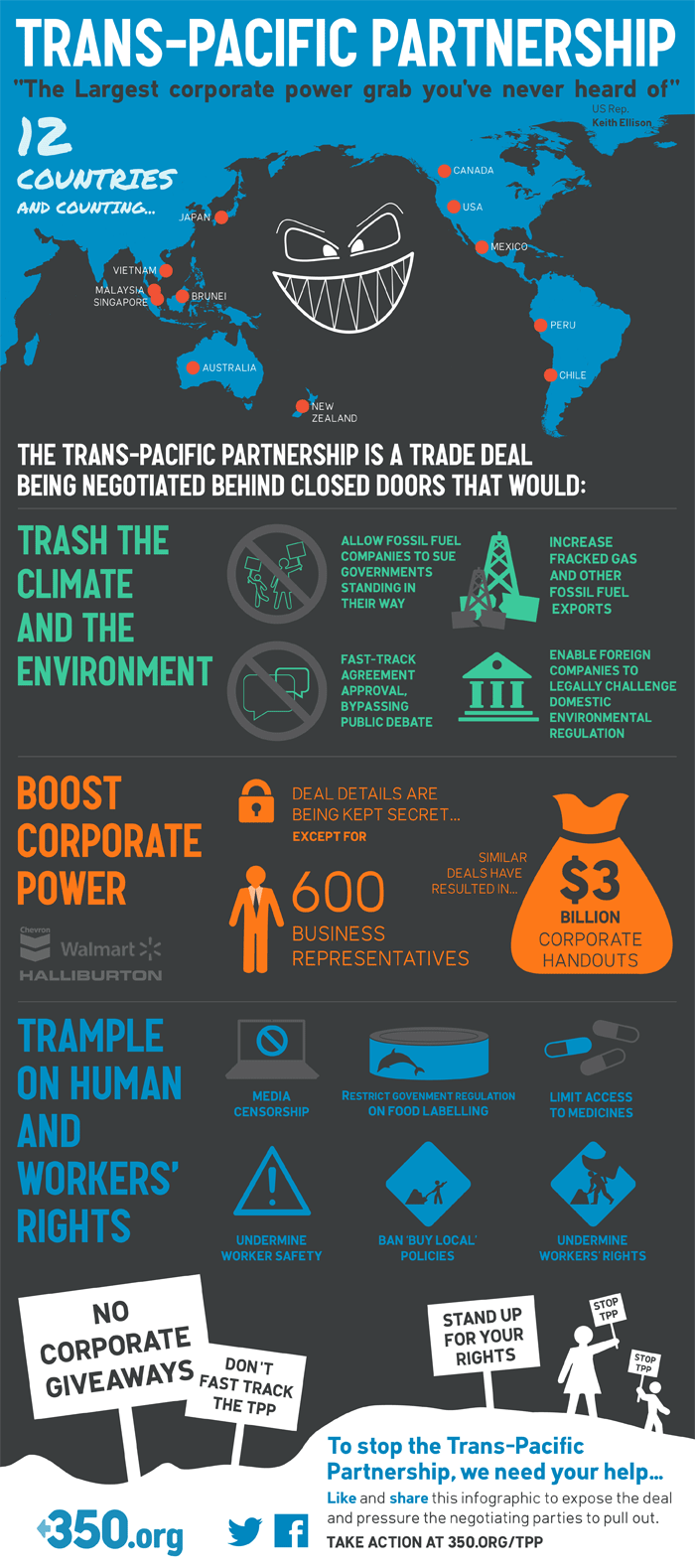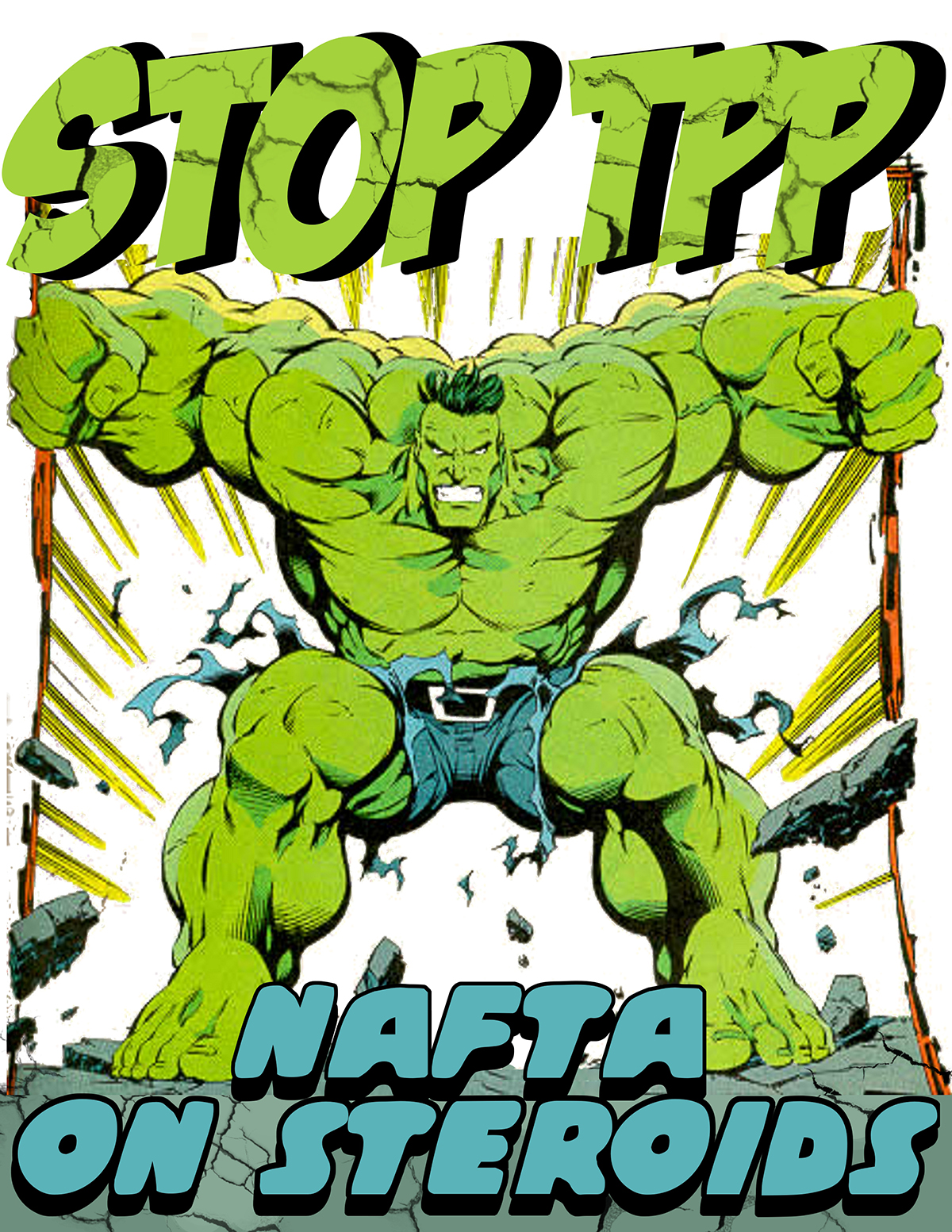“Do you plan on disrupting the hearing?” he asked. The long hallway outside Dirksen Senate Building Room 215 was filling up. What started as just a few people at five past 8 a.m. had now turned into something closer to 40 or 50 by 9:30.
The officer had asked me to step out of line so he could specifically ask me that question. “I just plan on taking pictures,” I said, motioning towards the camera hanging around my neck.
“Does anyone in that group plan on disrupting?” he asked, pointing at the others at the front of the line.
“I don't know. You'd have to ask them.”
He didn't ask. And they did disrupt.
As Cassidy Regan reported: “Activists with signs and banners chanting 'No TPP!' and 'No Fast Track!' were escorted from the Senate Finance Committee hearing room shortly after the U.S. Trade Representative took the microphone.”
With evenly spaced precision, Dr. Margaret Flowers, Kevin Zeese and Richard Ochs stood up inside this cocoon of corporate influence to interject a people's protest.
It was a refreshing breeze amidst the toxic sludge of vacant assertions and well rehearsed political lip service to corporate interests. Key words such as "middle class" and "new jobs" were flung around like confetti at a wedding, while non-answers to already zaftig questions somehow passed as satisfactory. Tuesday's Senate hearing appeared to be purely for show, with no real intention of dissecting Fast Track or the Trans-Pacific Partnership.
Regardless of what U.S Trade Representative Michael Froman said, the response from lawmakers was a nod of the head and a passing of the floor to someone else. Most of the senators looked as though they could care less whether TPP or Fast Track legislation passed. As I left the hearing, NSA head James Clapper's infamous statement before a Senate committee last year – in which he responded in the “least untruthful” way about NSA surveillance programs – bounced around in my mind.
If Froman had wanted to answer honestly about Fast Track and the actual impacts of the largest ever corporate free trade agreement known as the TPP, he might have said something to this effect:
“Fast Track will allow President Obama to push the TPP through Congress without allowing for any amendments to a trade deal that Congress still hasn't been allowed to review. Fast Track is, as Expose the TPP points out, a mechanism created by Nixon allowing the President to 'circumvent constitutional checks and balances to ram “free trade” agreements through Congress within 60-90 days of receiving it.'”
“As for the middle class," he could go on, "the TPP will offshore millions of good paying jobs to low-wage nations. And on top of that, it will extend corporate patents, decrease access to affordable healthcare, encourage privatization of land and natural resources, allow multi-national corporations to sue sovereign nations for loss of profit, and slash environmental regulations leading to even more grave damage of our already imperiled global ecosystem. There are a few more things that aren't among the chapters leaked by Wikileaks, but I'm not at liberty to discuss those here.”
Of course, Obama's corporate trade goon would never be so straightforward, nor would most members of Congress demand him to be. The only Senator at the hearing who appeared to have some deep-rooted skepticism about Fast Track and the TPP was Sen. Ron Wyden (D-OR) who brought up his concerns regarding environmental protection, living wages, job loss and transparency.
In response, Froman gave a weak compliment to Wyden regarding his continued service to his constituents – a quick non-answer, then he moved on.
That's why, for anyone tuning in Tuesday on C-Span, the handful of activists who showed up became the highlight of the hearing. And it didn't only happen in DC, but in New York as well. Braving #Snowmageddon2015, activists took to the streets of Manhattan on Monday to protest outside the Sheraton Hotel at Times Square where TPP negotiators were holding meetings. Protestors brought signs and puppets as they made noise and sang songs to draw attention to the closed-door gathering.
Looking ahead, further actions are planned in and outside of DC and New York City. For starters, between Feb 15 and 21, Congress will have recess, allowing citizens to confront their elected officials about TPP and Fast Track in their home states. To keep popular momentum growing, there are TPP Tuesdays, twitter storms and other creative actions to join each week.
Beyond protests, there are several platforms that allow people to connect directly with their representatives in order to voice opposition to both Fast Track and the TPP. This Facebook event, for example, gives background on the TPP and why we need to act now, then details how you can call your representative directly.
Alternatively, Stop Fast Track allows people to input their phone number so they can be called and connected directly with their representative for a conversation on the subject. Public Citizen also has a page where you can email your representatives to demand they drop the free trade legislation.
There's no shortage of ways to plug into the movement and halt this corporate trade behemoth in its tracks. Whether it's a 15-second tweet, a two-minute phone call or a five-minute arrestable stand in the halls of the Senate, there's something everyone can do to fight TPP and Fast Track.
3 WAYS TO SHOW YOUR SUPPORT
- Log in to post comments
















